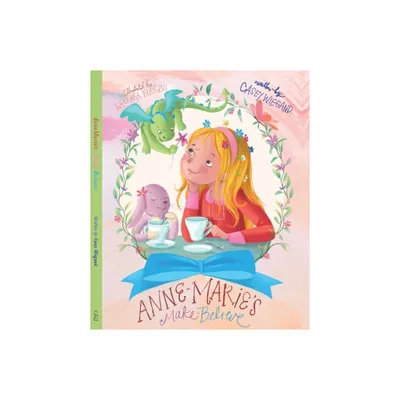Home
Making Make-Believe Real: Politics as Theater Shakespeare's Time
Loading Inventory...
Barnes and Noble
Making Make-Believe Real: Politics as Theater Shakespeare's Time
Current price: $62.00


Barnes and Noble
Making Make-Believe Real: Politics as Theater Shakespeare's Time
Current price: $62.00
Loading Inventory...
Size: Paperback
*Product Information may vary - to confirm product availability, pricing, and additional information please contact Barnes and Noble
A penetrating study of the images, symbols, pageants, and creative performances ambitious Elizabethans used to secure political power
Shakespeare’s plays abound with kings and leaders who crave a public stage and seize every opportunity to make their lives a performance: Antony, Cleopatra, Richard III, Othello, and many others. Such self-dramatizing characters appear in the work of other playwrights of the era as well, Marlowe’s Edward II and Tamburlaine among them. But Elizabethan playwrights were not alone in realizing that a sense of theater was essential to the exercise of power. Real rulers knew it, too, and none better than Queen Elizabeth. In this fascinating study of political stagecraft in the Elizabethan era, Garry Wills explores a period of vast cultural and political change during which the power of make-believe to make power real was not just a theory but an essential truth.
Wills examines English culture as Catholic Christianity’s rituals were being overturned and a Protestant queen took the throne. New iconographies of power were necessary for the new Renaissance liturgy to displace the medieval church-state. The author illuminates the extensive imaginative constructions that went into Elizabeth’s reign and the explosion of great Tudor and Stuart drama that provided the imaginative power to support her long and successful rule.
Shakespeare’s plays abound with kings and leaders who crave a public stage and seize every opportunity to make their lives a performance: Antony, Cleopatra, Richard III, Othello, and many others. Such self-dramatizing characters appear in the work of other playwrights of the era as well, Marlowe’s Edward II and Tamburlaine among them. But Elizabethan playwrights were not alone in realizing that a sense of theater was essential to the exercise of power. Real rulers knew it, too, and none better than Queen Elizabeth. In this fascinating study of political stagecraft in the Elizabethan era, Garry Wills explores a period of vast cultural and political change during which the power of make-believe to make power real was not just a theory but an essential truth.
Wills examines English culture as Catholic Christianity’s rituals were being overturned and a Protestant queen took the throne. New iconographies of power were necessary for the new Renaissance liturgy to displace the medieval church-state. The author illuminates the extensive imaginative constructions that went into Elizabeth’s reign and the explosion of great Tudor and Stuart drama that provided the imaginative power to support her long and successful rule.


















